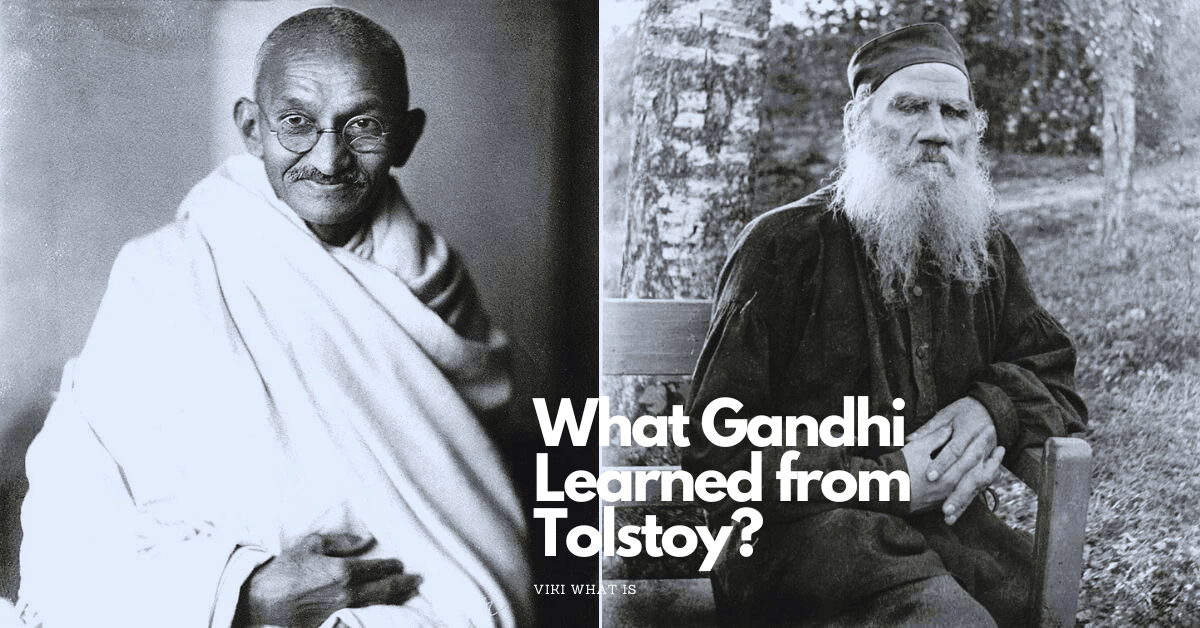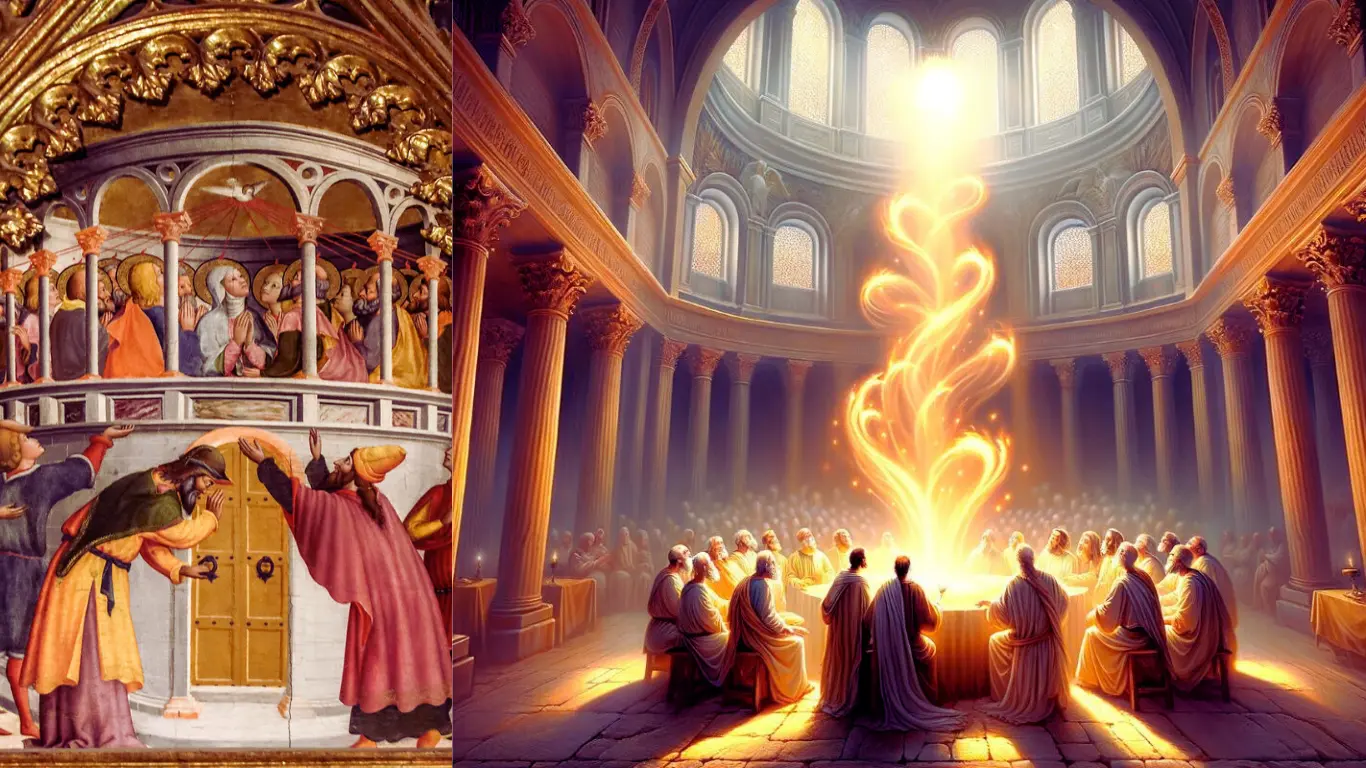Mahatma Gandhi, the iconic leader of India’s independence movement, and Leo Tolstoy, the renowned Russian author and philosopher, shared a profound connection that influenced the trajectory of Gandhi’s life and philosophy. This article delves into the lessons Gandhi gleaned from Tolstoy’s works and explores how these insights shaped Gandhi’s approach to non-violence, simplicity, and social change.
Introduction
Mahatma Gandhi and Leo Tolstoy, despite belonging to different cultures and backgrounds, found common ground in their pursuit of truth and non-violence. This article explores the symbiotic relationship between these two visionaries, unraveling the profound impact Tolstoy’s ideas had on Gandhi’s philosophy.
Gandhi’s Early Life and Influences
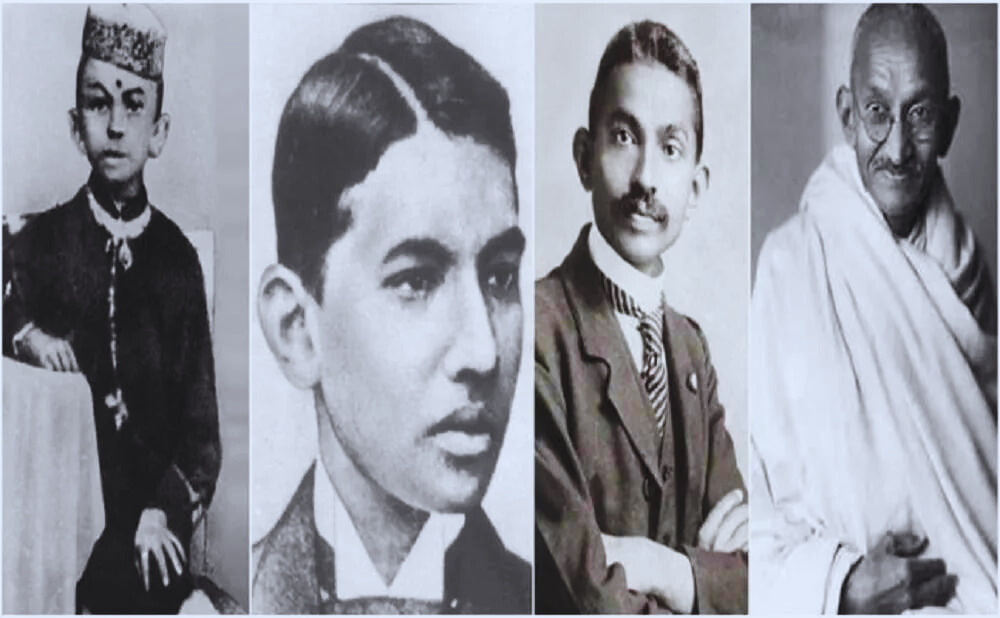
Mohandas Karamchand Gandhi, born on October 2, 1869, in Porbandar, India, into a Hindu family, played a pivotal role in India’s struggle for independence. His early life was marked by exposure to the values of self-discipline and nonviolence instilled by his family, particularly his father and grandfather, who were known for their abilities and upright character. Gandhi’s education took him to the Inner Temple in London, where he studied law and was called to the bar in June 1891.
Gandhi’s formative years involved a quest for knowledge, laying the foundation for his later connection with influential figures and philosophies. These early experiences and teachings influenced his approach to activism and shaped the principles that would define his leadership in the Indian independence movement.
Tolstoy’s Impact on Gandhi
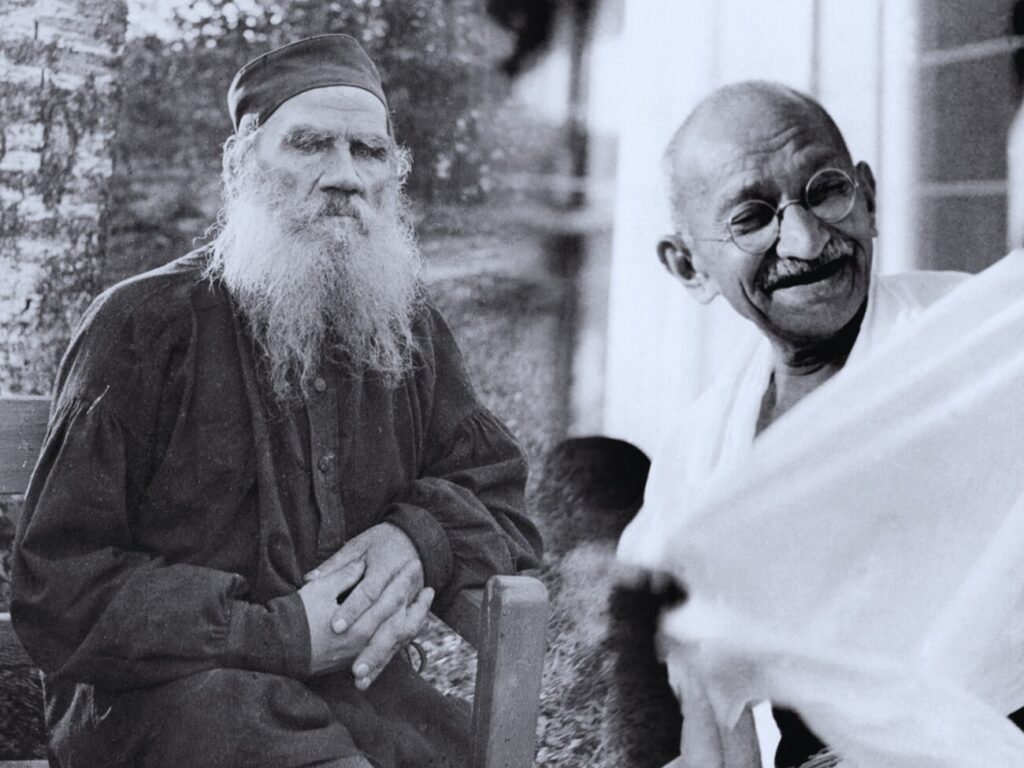
Leo Tolstoy’s profound influence on Mahatma Gandhi is evident in their intellectual exchange and shared ideals. Gandhi, deeply inspired by Tolstoy’s philosophy of non-violence, love, and non-violent resistance, incorporated these principles into his approach to civil disobedience[3]. The correspondence between Gandhi and Tolstoy is considered transformative, with Tolstoy’s letters serving as a clarion call for nonviolent resistance and a critique of false ideologies, both religious and pseudo-scientific.
Tolstoy’s work, especially “The Kingdom of God is Within You,” had a dramatic impact on Gandhi, prompting a significant change in his perspectives. The concept of ‘Bread Labour,’ along with the idea of self-sufficiency and simple living advocated by Tolstoy, resonated deeply with Gandhi and influenced his evolving philosophy.
The spiritual closeness between Gandhi and Tolstoy is encapsulated in their epistolary exchange, which played a pivotal role in shaping the fate of a nation and influencing the trajectory of non-violent movements globally.
Correspondence and Dialogue
The exchange of letters between Mahatma Gandhi and Leo Tolstoy holds a pivotal place in their intellectual engagement. Written in English, these letters reflect profound discussions on non-violence, global politics, and spirituality. Tolstoy’s letters, particularly in “The Kingdom of God is Within You,” served as a clarion call for nonviolent resistance, urging against false ideologies, both religious and pseudo-scientific. The correspondence, marked by a shared commitment to principles of love and non-violence, played a transformative role in shaping Gandhi’s philosophy and actions.
This intercultural and inter-religious dialogue emphasized the similarities between Tolstoy’s and Gandhi’s perspectives, contributing to the evolution of their respective ideologies. The letters continued over time, with Gandhi sending Tolstoy a copy of his work “Indian Home Rule,” further enriching their intellectual exchange.
Tolstoy’s Ideas on Non-Violence
Leo Tolstoy, a profound influence on Mahatma Gandhi, held strong convictions about non-violence, which significantly shaped Gandhi’s philosophy. Tolstoy’s writings were infused with the principles of love and the spirit, emphasizing non-violence as an ethical foundation. His book, “The Kingdom of God is Within You,” played a pivotal role in transforming Gandhi’s perspective. After reading this work, Gandhi’s faith in non-violence strengthened, leading to a profound shift away from violence.
Tolstoy’s thoughts on religion and non-violence were fundamental to his doctrine of “Truth Force,” a concept later developed by Gandhi in his philosophy of “Satyagraha”. Tolstoy believed in the essential power of love over ideologies of violence, and these beliefs resonated deeply with Gandhi, influencing the latter’s commitment to non-violent resistance.
A comparison between Tolstoy’s and Gandhi’s attitudes towards non-violence illustrates the shared commitment to this principle and its ethical significance in their respective philosophies.
Gandhi’s Implementation of Tolstoyan Philosophy
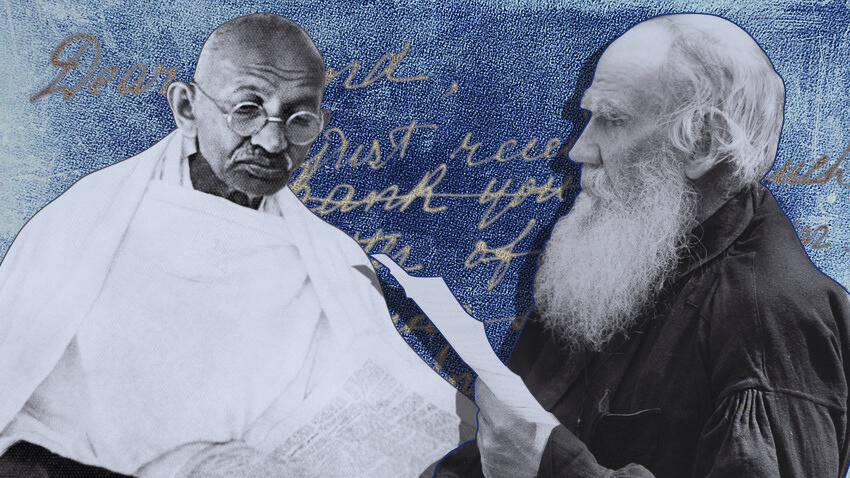
Mahatma Gandhi implemented Tolstoyan philosophy in his pursuit of non-violent resistance and social reform. Influenced by Leo Tolstoy’s ideas, Gandhi adopted principles of love, truth, and non-violence as the core tenets of his activism. Tolstoy’s argument that love alone can rescue individuals from enslavement deeply resonated with Gandhi, shaping his belief in the transformative power of non-violence.
Gandhi’s Satyagraha, the Might-of-Truth movement, was an expansion of the concept of ahimsa (non-violence) advocated by Tolstoy. This movement emphasized universal love and self-sacrifice as a means to resist oppression. The correspondence between Gandhi and Tolstoy played a crucial role in solidifying these principles, guiding Gandhi in the implementation of peaceful resistance upon his return to India.
Gandhi’s implementation of Tolstoyan philosophy resulted in a mass movement that gathered people from all walks of life, fostering social change and justice. The profound morality, independent thinking, and truthfulness embodied by Tolstoy inspired Gandhi during his incarceration, prompting a deeper exploration of these principles.
Critiques and Challenges Faced by Gandhi
Mohandas Karamchand Gandhi, often referred to as Mahatma Gandhi, faced various critiques and challenges during his lifetime:
1. Criticism of Racial Attitudes:
Gandhi’s attitudes towards race have been scrutinized. He used derogatory terms to refer to Africans, which led to criticisms of racism and derogatory language in his early life in South Africa.
2. Views on Women:
Gandhi’s views on women have been questioned, with critics highlighting his complex and contradictory stance. His relationships with women and his perceived misogyny have been subjects of scrutiny.
3. Controversies in Personal Life:
Activists, including #MeToo activists, have questioned Gandhi’s sexual practices, leading to discussions about the complexity of his personal life.
4. Criticisms of Untouchability:
Despite Gandhi’s efforts to eliminate untouchability, there are paradoxes and critiques regarding his approach, with some arguing that his efforts fell short of addressing the deeply ingrained caste system issues.
5. Modern Reinterpretations:
In contemporary times, there are modern attacks on Gandhi’s legacy, particularly related to his language and views on various groups. Some critics argue that revisiting historical figures requires a critical examination of their statements and actions.
Gandhi’s legacy is multifaceted, and his ideas and actions have been both praised and criticized. The complexities in his beliefs and practices reflect the challenges and debates surrounding his contributions to social and political change.
Shared Values: Simplicity and Self-Sufficiency
Mahatma Gandhi and Leo Tolstoy shared a profound connection rooted in the principles of simplicity and self-sufficiency:
1. Influence on Gandhi’s Philosophy:
Gandhi was deeply influenced by Tolstoy’s ideas, particularly the concepts of truth, non-violence, and self-sufficiency. Tolstoy’s emphasis on living a simple life had a significant impact on Gandhi’s philosophy.
2. Tolstoy Farm and Self-Reliance:
Gandhi implemented the principles of simplicity and self-sufficiency at Tolstoy Farm in South Africa. This intentional community practiced self-sufficiency through hard manual labor and adhered to values like truth and non-violence.
3. Bread Labour Concept:
Gandhi advocated the concept of “Bread Labour,” which emphasized the importance of productive work for sustenance. He believed that engaging in manual labor was essential for personal development and societal well-being.
4. Simplicity in Life:
Both Tolstoy and Gandhi embraced a minimalist lifestyle. Gandhi, influenced by Tolstoy, lived a simple life and encouraged others to do the same. This simplicity extended to their appearance, possessions, and daily practices.
The shared values of simplicity and self-sufficiency formed a core part of the ethical and philosophical foundation of both Gandhi and Tolstoy. These principles not only influenced their personal lives but also played a crucial role in shaping their visions for social change.
Divergences in Philosophies

The correspondence and interaction between Leo Tolstoy and Mahatma Gandhi revealed both convergences and divergences in their philosophical outlooks:
1. Non-Violence and Passive Resistance:
- Convergence: Both Tolstoy and Gandhi were proponents of non-violence. Gandhi drew inspiration from Tolstoy’s writings on non-violence and passive resistance.
- Divergence: While united in their commitment to non-violence, there were nuanced differences in their approaches and applications of this principle in various contexts.
2. Religious Views:
- Convergence: Tolstoy and Gandhi shared a deep spiritual connection. Tolstoy’s Christian anarchism resonated with Gandhi’s philosophic anarchism.
- Divergence: Despite these shared spiritual foundations, they adhered to different religious traditions, with Tolstoy being a Christian and Gandhi incorporating Hindu beliefs into his philosophy.
3. Political Perspectives:
- Convergence: Both thinkers critiqued institutionalized structures and oppressive political systems.
- Divergence: Tolstoy’s anarchism inclined towards a rejection of all forms of government, while Gandhi’s vision involved transforming existing structures through non-violent means.
4. Views on Progress and Materialism:
- Convergence: Both were critical of modernity, materialism, and the dehumanizing effects of industrialization.
- Divergence: Tolstoy’s rejection of private property and advocacy for communal living differed from Gandhi’s emphasis on self-sufficiency and decentralized, but individual, village life.
Legacy of Gandhi-Tolstoy Connection
The correspondence and intellectual exchange between Mahatma Gandhi and Leo Tolstoy played a pivotal role in shaping the philosophies of both leaders and left a lasting legacy:
1. Formation of Non-Violent Resistance:
- Correspondence Initiation: Gandhi initiated contact with Tolstoy, seeking advice on the struggle in Transvaal, which led to a meaningful exchange of letters.
- Impact: Tolstoy’s ideas on non-violence profoundly influenced Gandhi’s commitment to Satyagraha, the philosophy of non-violent resistance.
2. Influence on Gandhi’s Philosophy:
- Inspiration: Gandhi was particularly moved by Tolstoy’s essay “Letter to a Hindu,” which advocated for non-violent resistance against oppression.
- Implementation: Gandhi incorporated Tolstoyan principles into his own philosophy, becoming a significant force in India’s struggle for independence.
3. Global Celebration of Legacy:
- International Impact: The legacies of Gandhi and Tolstoy continue to be celebrated globally, connecting Russia and India through shared values of non-violence and social change.
- Commendation: Many countries and institutions, especially in India, honor the enduring impact of their connection.
4. Gandhi as a Reader of Tolstoy:
- Connecting Link: Gandhi’s reading of Tolstoy served as a major connecting link between Russia and India.
- Cultural Exchange: Their intellectual exchange contributed to a broader understanding and appreciation of each other’s cultures.
Contemporary Relevance
Leo Tolstoy’s influence on Mahatma Gandhi continues to hold contemporary relevance, especially in the context of non-violence, love, and social change:
1. Philosophy of Non-Violence (Ahimsa):
- Gandhi’s Adherence: Influenced by Tolstoy, Gandhi embraced non-violence as a powerful tool for social and political change.
- Modern Application: The principles of non-violence are echoed in various modern movements advocating peaceful resistance and social justice.
2. Emphasis on Love and Compassion:
- Tolstoyan Love: Tolstoy’s emphasis on love as a force for change resonated with Gandhi, shaping his approach to activism.
- Contemporary Movements: Many contemporary movements prioritize love, compassion, and empathy in addressing societal issues.
3. Critique of False Ideologies:
- Relevance in Today’s World: Tolstoy’s critique of false ideologies is pertinent in the age of misinformation, encouraging critical thinking and awareness.
- Addressing Pseudo-Scientific Beliefs: His warnings against pseudoscience find resonance in the modern challenge of combating misinformation.
4. Global Recognition:
- Celebrating Legacy: Institutions and countries globally celebrate the enduring impact of the Tolstoy-Gandhi connection.
- Connecting Cultures: The connection serves as a bridge between Russian and Indian cultures, promoting cross-cultural understanding.
Lessons for Today’s Leaders

Exceptional leadership principles, inspired by Tolstoy, Gandhi, and King, provide valuable insights for today’s leaders:
1. Learnable Behaviors:
- Exceptional leadership arises from behaviors that can be learned and cultivated over time.
- Understanding and adopting the philosophy shared by Tolstoy, Gandhi, and King can enhance leadership qualities.
2. Power of Non-Violence:
- Gandhi’s life emphasizes the profound impact of non-violence as a powerful tool for change.
- Leaders today can draw inspiration from Gandhi’s commitment to non-violent resistance in addressing contemporary challenges.
3. Adaptability to Change:
- Circumstances are ever-changing, and effective leaders must embrace adaptability.
- Gandhi’s lessons emphasize the importance of being responsive to change, a crucial trait for leaders navigating today’s dynamic world.
4. Universal Love and Compassion:
- Tolstoy and Gandhi preached universal love, emphasizing concern for the weakest members of society.
- Today’s leaders can foster inclusive leadership by incorporating love and compassion into their decision-making.
5. Spiritual Direction in Leadership:
- Tolstoy’s notion of “spiritual direction” offers a perspective on aligning leadership with ethical and moral principles.
- Leaders can benefit from integrating spiritual and moral dimensions into their leadership approach.
Reflections on Personal Growth
The exchange of letters between Mahatma Gandhi and Leo Tolstoy played a pivotal role in shaping both individuals’ philosophies, focusing on personal growth and self-discovery. Tolstoy’s “Letter to a Hindu” prompted Gandhi to correspond, leading to a meaningful dialogue on spirituality, nonviolence, and the pursuit of truth. Their shared values emphasized self-restraint, love, and unity among individuals, illustrating a commitment to moral growth and ethical living.
Gandhi, inspired by Tolstoy’s emphasis on simplicity and self-discipline, advocated these principles in his pursuit of Swaraj (self-governance) and Satyagraha (nonviolent resistance). The reflections on personal growth echoed in their discourse continue to inspire individuals worldwide, emphasizing the transformative power of inner development and adherence to moral principles.
Gandhi and Tolstoy in Popular Culture
The influence of Leo Tolstoy on Mahatma Gandhi is evident in popular culture through various mediums. Gandhi frequently referred to Tolstoy’s works, emphasizing the importance of “bread labor”. Their shared ideals, including nonviolence and love as transformative forces, are reflected in discussions, literature, and historical narratives. Despite never meeting, their intellectual exchange continues to be a source of inspiration, fostering a cultural legacy that promotes peaceful resistance and spiritual growth.
Gandhi’s endorsement of Tolstoy’s principles, such as those found in “War and Peace,” has left a lasting imprint on the discourse surrounding freedom struggles and social change. Additionally, the letters exchanged between Tolstoy and Gandhi are studied and celebrated, showcasing the intellectual synergy that transcends cultural and geographical boundaries.
Tolstoy’s enduring influence, particularly through his book “The Kingdom of God Is Within You,” has solidified his place in Indian culture, with Gandhi considering it a significant source of inspiration. The resonance of their ideas is evident in contemporary discussions on morality, nonviolent resistance, and the pursuit of truth.
Conclusion
In conclusion, the enduring connection between Gandhi and Tolstoy serves as a testament to the transformative power of ideas. This article encourages readers to delve deeper into the philosophies of these two remarkable figures and draw inspiration for their own journeys.
Read also: How Deforestation in Nepal Affects India?
FAQs
Q. Did Gandhi and Tolstoy ever meet in person?
While the two never met face-to-face, their connection was primarily through letters and written correspondence.
Q. What were some key differences in Gandhi and Tolstoy’s philosophies?
While both advocated for non-violence, there were differences in their views on organized religion and the role of the state.
Q. How did Tolstoy’s literature influence Gandhi’s thinking?
Tolstoy’s works, especially “The Kingdom of God Is Within You,” deeply influenced Gandhi’s understanding of non-violence and spirituality.
Q. What challenges did Gandhi face in implementing Tolstoyan principles?
Gandhi faced opposition to his non-violent methods, both within the Indian independence movement and from external critics.
Q. Are there contemporary leaders who follow Gandhi and Tolstoy’s principles?
Some leaders today draw inspiration from Gandhi and Tolstoy, adapting their principles to address modern challenges.
